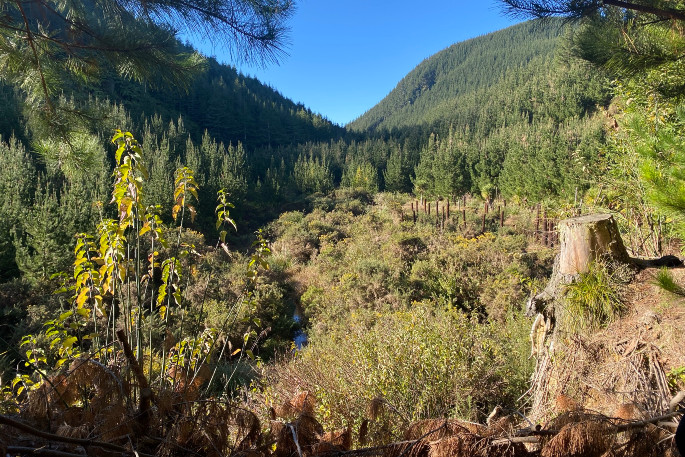The International Day of Forests is a great opportunity to reflect on the critical role our forests play in the lives of New Zealanders across the country, says Te Uru Rākau – New Zealand Forest Service.
International Day of Forests is on Monday, March 21, and aims to celebrate and raise awareness of the importance of all of New Zealand's 9.7 million hectares of forests – exotic and native – covering 38 per cent of the land.
'Trees are part of peoples' everyday lives, no matter whether they live in rural or suburban areas or city centres,” says Alex Wilson, Grants & Partnerships Director, Forest Development, at Te Uru Rākau – New Zealand Forest Service.
'I am encouraging everyone in New Zealand, no matter where you are, to take a moment on Monday and reflect on the value our forests add to our communities, biodiversity, local economies and everyday lives and activities.
'Forests provide people with goods such as timber, fuel, food and fodder, help combat climate change, protect and enhance biodiversity, soils, rivers, and reservoirs, and serve as areas where people can get close to nature."
Since 2018, Te Uru Rākau – New Zealand Forest Service has supported planting of nearly 350 million native and exotic trees, with benefits for all in Aotearoa.
'I'm proud of the work being done to enable and support tree planting projects all over the country. It's also worth noting these projects are not just confined to rural and provincial areas, but urban and inner city too,” Alex Wilson says.
'Te Uru Rākau – New Zealand Forest Service has supported conservation volunteers to plant urban forests for example through the Forests in the Heart of Wellington project on Mt Victoria, which over the last three years has resulted in 45,000 native trees being planted by the community.
Another project in the capital, at Owhiro Bay, starts this year with planting of a further 20,000 native trees.
'These forests are really important spaces for cities. Among other things, they provide important habitat for wildlife and opportunity for urban residents to spend time enjoying nature.”
At the other end of Te Ika-a-Māui, (the North Island), Forward Whangarei has planted more than 80,000 trees at multiple sites across the Northland region over two years. This highly motivated group is planting another 50,000 trees at various sites. Planting kicked off in 2021 and is continuing through 2022.
'Forward Whangarei is a great example of a volunteer organisation doing extraordinary work for their community that will leave a lasting legacy for generations to come,” Alex Wilson says.
Te Uru Rākau – New Zealand Forest Service is committed to investing in tree planting, and funding options include the Hill County Erosion and Matariki Tu Rākau. The Sustainable Food & Fibre Futures fund is another investment tool available via the Ministry for Primary Industries (MPI).
The Matariki Tu Rākau fund is also now open for applications for less than one hectare of commemorative planting on marae and public land.
'Forests play a key role in many priority areas,” says Alex Wilson. 'It enhances regional development, enables strong partnerships with Māori to realise the potential of their land, improves water quality, enhances New Zealand's biodiversity, and reduces erosion as well as carbon emissions.
'These are all part of MPI's Fit for a Better World roadmap and building a stronger Aotearoa,” says Alex Wilson.



0 comments
Leave a Comment
You must be logged in to make a comment.